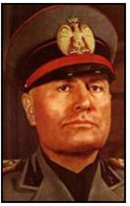 Long Answer Type
Long Answer TypeWith reference to the Union Legislature, answer the following questions:
(a) How is the Speaker of the Lok Sabha elected? State any two Disciplinary Functions of the Speaker.
(b) Explain any two conditions under which a member of Parliament can be disqualified under the Anti Defection Law.
(c) Give reasons to justify why the Lok Sabha is considered to be more powerful than the Rajya Sabha.
The President of India is the Constitutional Head of the Indian Republic. In this context, answer the following questions:
(a) How is the President elected?
(b) Mention three types of Emergencies that the President is empowered to proclaim.
(c) Explain briefly any four ‘Executive Powers’ of the President.
The Supreme Court has extensive jurisdiction. In the light of this statement, answer the following questions:
(a) What are the qualifications of the Judges of the Supreme Court?
(b) (i) Explain the composition of Supreme Court.
(ii) How are the judges of the Supreme Court appointed?
(c) Explain the cases in which the Supreme Court enjoys Original Jurisdiction.
Explain the causes of the Great Revolt of 1857 with reference to the following:
(a) Any three political causes.
(b) Any three military causes.
(c) Any four economic causes.
Through various national movements, Gandhiji mobilised public support to win freedom for India. In this context, state the following:
(a) Any three causes for Gandhiji to launch the Non-Cooperation Movement.
(b) The name given to the uprising of 1942. Two reasons for launching this mass uprising.
(c) The impact of the Non-Cooperation Movement in India’s freedom struggle.
The partition of Bengal and the formation of the Muslim League were two important events that had an impact on the national struggle for independence. In this context, explain the following:
(a) Impact of the Swadeshi and Boycott movements as part of the Anti-Partition Movement.
(b) Any three factors relating to the formation of the Muslim League.
(c) Objective of the Muslim League.

(a) Identify the leader in the picture. Give two examples to state that the leader followed an expansionist policy.
(b) State three factors that led to the rise of Fascism.
(c) State four similarities between the ideologies of Nazism and Fascism.
With reference to the United Nations and its related agencies, answer the following questions:
(a) Explain any three functions of the WHO.
(b) State the composition of the International Court of Justice.
(c) State any four functions of the General Assembly.
(a) Three functions of WHO:
i. The WHO assists countries in improving their health system by building up infrastructure, especially manpower, institutions and services for the individual and the community.
ii. The WHO provides important drugs required for proper medical care. It has a programme intended to immunise children against six major diseases—measles, diphtheria, tetanus, tuberculosis, polio and whooping cough.
iii. It promotes research aimed at discovering the cure and prevention of diseases. For example, it arranged for the investigation of cancer and heart diseases in laboratories in many countries to identify disease-causing organisms, to improve vaccines and to train research workers.
(b) The Court is composed of 15 judges who are elected for terms of office of nine years by the United Nations General Assembly and the Security Council from a list of people who are nominated by the national groups in the Permanent Court of Arbitration. The process falls under Article 4–19 of the International Court of Justice statute. Article 6 of the statute states that all judges should be ‘elected regardless of their nationality among persons of high moral character’ who are either qualified for the highest judicial office in their home states or known as lawyers with sufficient competence in international law.
(c) Four functions of the General Assembly:
i. To consider and make recommendations on the principles of cooperation in the maintenance of international peace and security.
ii. To discuss questions regarding international peace and security and (except where a dispute or situation is currently being discussed by Security Council) to make recommendations on it.
iii. To discuss and make recommendations on any question within the scope of the Charter or affecting the powers and functions of any organ of the United Nations.
iv.To initiate studies and make recommendations to promote international political, social and economic cooperation.
